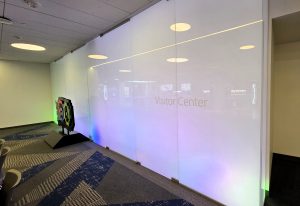Working Through Where to Work From: Navigating the Evolving Landscape of the Modern Workplace
The COVID-19 pandemic irrevocably altered the way we work, ushering in an era of unprecedented flexibility and remote work opportunities. While the initial shift to remote work was often abrupt and reactive, organizations and employees are now grappling with the long-term implications of this transformation. The question is no longer if we can work remotely, but where and how we should work to maximize productivity, employee well-being, and business success. The evolving landscape of the modern workplace presents both unique challenges and exciting opportunities, demanding careful consideration of various factors to determine the optimal work arrangements.
The traditional office space is being reimagined as companies explore a spectrum of work models, ranging from fully remote to hybrid arrangements that blend in-office and remote work. This shift has spurred a surge in demand for flexible workspace solutions, including coworking spaces, satellite offices, and hot-desking arrangements. Organizations are increasingly recognizing the importance of providing employees with choice and autonomy, allowing them to select the work environment that best suits their individual needs and preferences. This flexibility can significantly contribute to improved work-life balance, reduced commuting stress, and increased employee satisfaction. However, implementing successful hybrid or remote models necessitates careful planning and investment in technology and infrastructure to ensure seamless communication, collaboration, and data security.
One of the critical challenges of the evolving workplace is maintaining a strong company culture and fostering a sense of belonging among a geographically dispersed workforce. Traditional methods of team building and social interaction, such as casual office conversations and company events, are no longer as readily available. Organizations are exploring innovative ways to connect employees virtually, utilizing online communication platforms, virtual team-building activities, and hybrid events that cater to both in-person and remote participants. Cultivating a strong remote culture requires proactive communication, transparent leadership, and a conscious effort to create opportunities for informal interaction and relationship building. The focus must shift towards outcome-based performance management, emphasizing trust and accountability rather than physical presence.
The changing work environment also presents significant implications for talent acquisition and retention. With the rise of remote work, companies can access a wider pool of talent, no longer limited by geographical constraints. This expanded talent pool can lead to increased diversity and inclusion, bringing unique perspectives and skills to the organization. However, attracting and retaining top talent in a competitive remote work market requires organizations to offer competitive compensation and benefits packages, flexible work arrangements, and opportunities for professional development. Building a strong employer brand and showcasing a commitment to employee well-being are essential for attracting and retaining talent in the new world of work.
From a real estate perspective, the shift towards hybrid and remote work models is impacting the demand for traditional office space. While some companies are downsizing their office footprint, others are reconfiguring their existing spaces to accommodate collaborative work areas, meeting rooms, and flexible desk arrangements. The future of the office may involve a move towards smaller, more agile spaces that serve as hubs for collaboration and connection rather than traditional individual workstations. This evolution presents opportunities for real estate developers and landlords to adapt to the changing needs of businesses, offering flexible lease terms and incorporating amenities that cater to the preferences of the modern workforce.
Looking ahead, the future of work is likely to be characterized by continued experimentation and evolution. As organizations and employees gain more experience with hybrid and remote work models, best practices will emerge, and technology will continue to advance, further enabling flexible and productive work arrangements. The key to success in this evolving landscape is adaptability, open communication, and a willingness to embrace change. By prioritizing employee well-being, fostering a strong company culture, and investing in the necessary technology and infrastructure, organizations can navigate the complexities of the modern workplace and create a thriving work environment that attracts and retains top talent, fosters innovation, and drives business success.
The paradigm shift in workplace dynamics necessitates a comprehensive understanding of the multifaceted implications. Businesses need to thoughtfully consider the impact of remote work on employee productivity, communication, and collaboration. While remote work offers flexibility and can improve work-life balance, it also presents challenges in maintaining team cohesion and fostering a sense of belonging. Organizations must strategically address these challenges through innovative communication strategies, virtual team-building activities, and a culture of trust and accountability.
The evolving technological landscape plays a crucial role in shaping the future of work. Advances in cloud computing, video conferencing, and collaboration tools have enabled seamless remote work experiences. Organizations must invest in robust technological infrastructure to support remote teams and ensure data security. Moreover, ongoing training and development programs are essential to empower employees with the necessary digital skills to thrive in the evolving work environment.
The impact of remote work on employee well-being is a crucial factor to consider. While remote work can reduce commuting stress and offer greater flexibility, it can also blur the boundaries between work and personal life, leading to burnout and feelings of isolation. Organizations must prioritize employee well-being by promoting healthy work habits, encouraging breaks, and providing access to mental health resources. Creating a supportive and inclusive remote work culture that fosters a sense of community is essential for promoting employee well-being and reducing stress.
The rise of the hybrid work model, which combines in-office and remote work, presents both opportunities and challenges. Organizations adopting hybrid models need to carefully consider the logistics of scheduling, office space utilization, and maintaining equitable experiences for both in-office and remote employees. Clear communication and guidelines are crucial to ensure that all employees feel valued and included, regardless of their work location. Implementing effective hybrid models requires careful planning, ongoing evaluation, and a willingness to adapt to the evolving needs of the workforce.
The future of work is likely to be characterized by a fluid and adaptable work environment. Organizations must embrace a continuous improvement mindset, regularly evaluating their work models and adjusting strategies as needed. The ability to adapt to changing circumstances and embrace innovation will be crucial for organizations seeking to thrive in the ever-evolving workplace landscape. The future of work is not a one-size-fits-all solution; organizations must tailor their approach to meet the specific needs of their workforce and business objectives.
The reimagining of the workplace presents opportunities for organizations to foster a more inclusive and equitable work environment. Remote work can provide greater flexibility for employees with disabilities or caregiving responsibilities, enabling them to participate more fully in the workforce. Organizations should leverage this opportunity to create a workplace culture that values diversity and inclusion, providing equal opportunities for all employees, regardless of their location or circumstances. Building an inclusive remote work culture requires proactive efforts to promote accessibility, address unconscious biases, and create a sense of belonging for all employees.
The evolving work landscape demands a shift in leadership styles and management practices. Traditional command-and-control approaches are no longer effective in a remote or hybrid work environment. Leaders must embrace a more collaborative and empowering leadership style, fostering trust, autonomy, and accountability among their teams. Effective communication, transparent decision-making, and regular feedback are essential for building strong relationships and maintaining productivity in a geographically dispersed workforce.
The changing nature of work also necessitates a shift in performance management practices. Traditional metrics based on presenteeism are no longer relevant in a remote work environment. Organizations must adopt outcome-based performance management systems that focus on results and deliverables rather than time spent in the office. This shift requires clear goal setting, regular performance reviews, and a focus on employee development and growth.
The future of work is characterized by uncertainty and constant change. Organizations must embrace a culture of experimentation and continuous learning, adapting strategies and processes as needed. Embracing flexibility, agility, and a willingness to embrace new ways of working will be essential for organizations seeking to thrive in the dynamic and evolving work landscape. The ability to anticipate and respond to change will be a key differentiator for organizations in the future of work.
The impact of the evolving work environment on individual careers is profound. Employees must develop a growth mindset, embracing lifelong learning and developing new skills to remain competitive in the changing job market. The ability to adapt to new technologies, work independently, and collaborate effectively in virtual teams are essential skills for success in the future of work. Individuals must take ownership of their career development, seeking opportunities for professional growth and networking to build strong professional relationships.
The future of work is not a destination, but a journey of continuous evolution. Organizations and individuals must embrace change, adapt to new technologies, and prioritize continuous learning to thrive in the dynamic world of work. The future of work is full of both challenges and opportunities, and those who are able to embrace innovation and adapt to changing circumstances will be best positioned for success.











